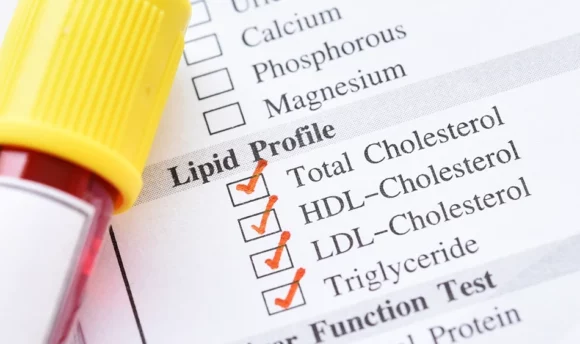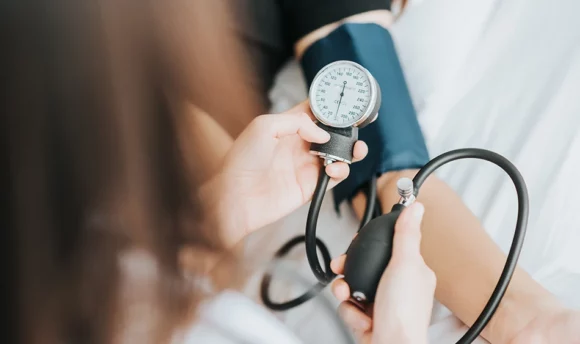High Blood Pressure and a Low Pulse: What Does It Mean?
High blood pressure with a low heart rate can be concerning. These two symptoms could indicate a range of problems and should be addressed by a doctor. To find out more about what is causing them, check out our article.

Both blood pressure and heart rate are used to measure heart health and monitor its activity. Your pulse rate, or heart rate, measures how many times your heart beats each minute and your blood pressure refers to the force your blood is putting on your blood vessels as it moves around the body.
A slow pulse rate with high blood pressure indicates that there is a lot of pressure being put on your blood vessels but that the heart is beating 60 times or fewer per minute. Several things can cause this.
In this article, we’re going to take a look at what it means when you have high blood pressure and a slow heart rate, what can cause this, and how you can keep your heart in better health. Keep reading to learn more.
High Blood Pressure and a Low Pulse – What Does It Mean?
High blood pressure with a slow pulse rate indicates that while the heart is beating fewer than 60 times per minute, there is a lot of pressure being put on your blood vessels as the blood moves around your body.
High blood pressure can result from obstructions and narrowing of the blood vessels, which, in turn, causes the heart to beat more quickly to move blood through your body effectively. When your heart rate and blood pressure are out of sync, it can cause mayhem in your body.
With high blood pressure and a low pulse rate, you may experience symptoms, which include:
- Confusion
- Finding exercise difficult
- Feeling dizzy
- Feeling faint, almost fainting, or fainting
- Tiredness and fatigue
- Shortness of breath
- Feeling weak
Extreme instances of raised blood pressure and a slow heart rate can result in cardiac arrest and require emergency medical treatment.
Your pulse rate can be affected by many things, including exercise, fear, stress, diet, and being sedentary. Usually, the blood is pumped through the blood vessels easily. When an obstruction in the vessels, or narrowing of the vessels, leads to high blood pressure, a low pulse rate may become a problem.
What Does a Low Pulse Mean?
A low pulse rate is defined as fewer than 60 heartbeats per minute. It is a problem if the heart rate becomes so low it cannot pump oxygen-rich blood to the body. It may come with symptoms like dizziness and weakness.
A low heart rate isn’t always a cause for concern. A normal resting heart rate of 40–60 beats per minute is expected during sleep in young and healthy adults. However, a low heart rate can result in organs in the body not getting enough blood.
Many things can cause a low pulse. These include:
- A problem with the sinoatrial (SA) node. This is a cluster of cells on the heart muscle referred to as the heart’s natural pacemaker and sends electrical impulses to regulate how the heart beats.
- A problem with the electrical system pathways of the heart. If blood is not allowed to pass from the atria to the ventricles properly, it may result in a lower heart rate.
- Metabolic problems, like hypothyroidism
- Damage to the heart caused by an illness like heart disease or a heart attack
- Some heart medications that cause bradycardia as a side effect
What Causes a Low Pulse With High Blood Pressure?
Many things can cause a low pulse rate with high blood pressure, and we’ve taken a look at some of them below.
#1 Some medications
Blood pressure medications, like calcium channel blockers and beta-blockers, can cause a slower pulse rate. This is because they lower the number of times your heart beats per minute to lower the pressure on your blood vessels, decreasing the pressure your heart is under.
#2 Traumatic injury
Injury to the brain or bleeding in the brain may cause both raised blood pressure and a slow heart rate. Both of these can result in what is known as the Cushing reflex. Symptoms of this condition are:
- Low pulse rate
- Raised blood pressure
- Very slow breathing
If you have recently suffered a head injury and experience these symptoms, you must seek immediate medical attention.
#3 Thickened heart tissue
High blood pressure can lead to thicker and harder heart muscles. As it tries to pump harder, the tissue becomes thicker and less conductive to electrical impulses. This means these electrical signals take longer to transmit, and the heart pumps blood more slowly.
When Should I Be Worried About High Blood Pressure and a Low Pulse?
You should seek medical attention for high blood pressure and a slow heart rate if you do not know of any reason for these two symptoms, i.e., you’re not on any medication that could cause it. You should also speak with a medical professional if these symptoms come with dizziness, fatigue, and confusion, or if they have come after a serious head injury.
In most cases, high blood pressure and a low heart rate have an explanation. If you are taking medications for blood pressure, like calcium channel blockers or beta-blockers, you may experience these symptoms due to the mechanism of your medicine.
Some people have lower heart rates naturally, too. Athletes and people in very good physical shape have trained their hearts to pump blood at a lower rate while still thoroughly supplying their bodies with blood.
After exercise, very fit individuals with lower pulse rates may experience these symptoms, as exercise naturally causes a temporary increase in blood pressure.
If you’re experiencing these symptoms and other side effects like dizziness and shortness of breath, it may be time to speak with your doctor. They can work with you to determine the cause of your high blood pressure and low heart rate.
While high blood pressure and a low heart rate are usually easily explained, they could also be a symptom of an untreated illness or injury, and so speaking with a medical professional is best if you’re concerned.
How to Take Care of Your Heart Health
You can take care of your heart health and improve it in many ways. You can begin by altering your eating habits to include more heart-healthy foods. Consuming more whole foods, like grains, fruits, vegetables, legumes, and healthy fats, can increase both your heart health and your overall health.
It would be best if you also tried to cut back on sugary, fatty, and processed foods and foods that are very high in salt.
Losing weight can help reduce pressure on your cardiovascular system, improving your heart health. You can lose weight by eating a healthy and whole diet, including the foods we have already mentioned, and increasing the amount you exercise each week.
Eating a healthier diet and exercising more can help reduce blood pressure and cholesterol levels and increase overall heart health.
If you smoke, it is recommended that you stop. Quitting smoking can cut your risk of heart disease in half after just a year, and after 15 years of not smoking, your chance of it will be back to that of a non-smoker. If you’re struggling to stay on top of your heart health, you could try out a blood pressure management app.
A Word From Our MD
High blood pressure coupled with a low heart rate can be alarming, but it can be explained easily most of the time.
In some cases, though, high blood pressure and low heart rate may indicate something more serious. It may be caused by injury to the heart, a bleed on the brain, or a thickening of the heart walls, all of which need to be checked by a doctor.
A normal resting heart rate usually falls between 60–100 beats per minute, though some athletes and very fit individuals may have a lower heart rate. A low heart rate is usually defined as fewer than 60 beats per minute.
High blood pressure can be a side effect of exercise but may also be caused by an obstruction or narrowing of the vessels that cause the heart to pump harder to move blood around the body.
High blood pressure is one of many risk factors for cardiovascular diseases and other chronic illnesses and needs to be addressed by your doctor. Other heart symptoms that a doctor should address include chest pain and heart palpitations.
Conclusion
Many different things could cause high blood pressure with a low pulse rate. While medications, exercise, stress, and fear could be linked to these symptoms, they may also indicate a problem with the electrical system in the heart or injury to the brain.
Getting any heart symptoms checked out by your doctor if there is no easy explanation for them is essential.

















































 Select your language:
Select your language: 








